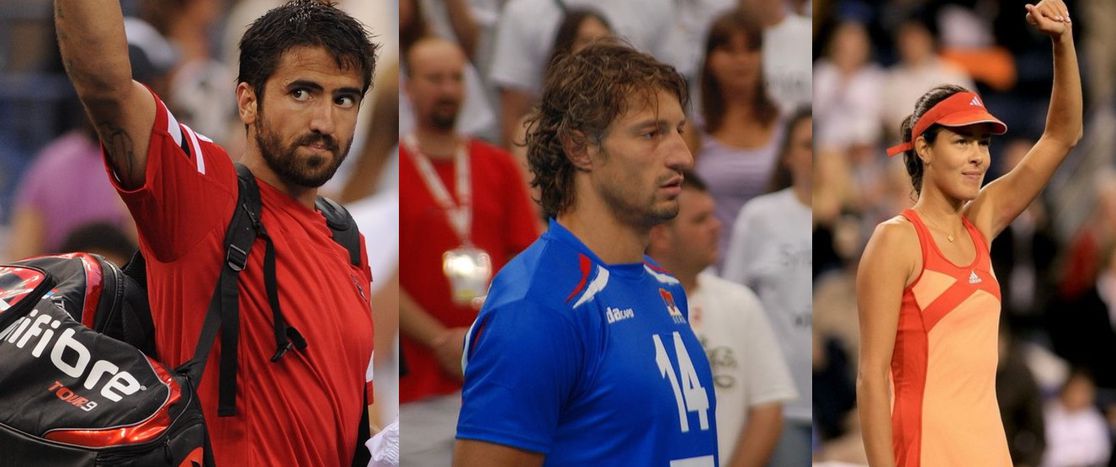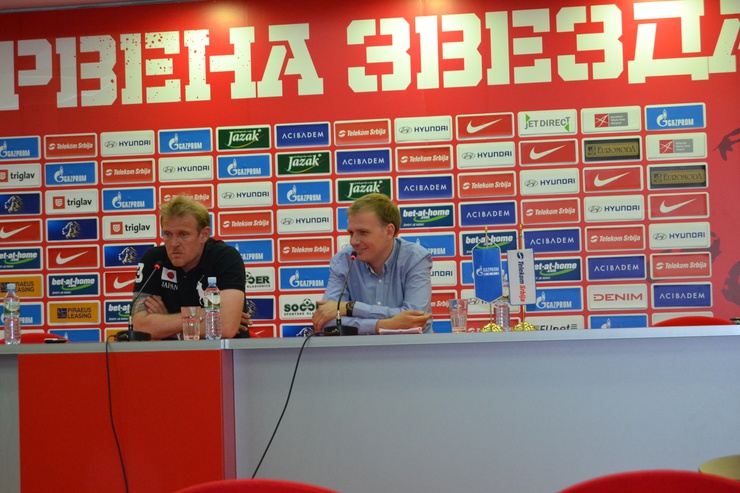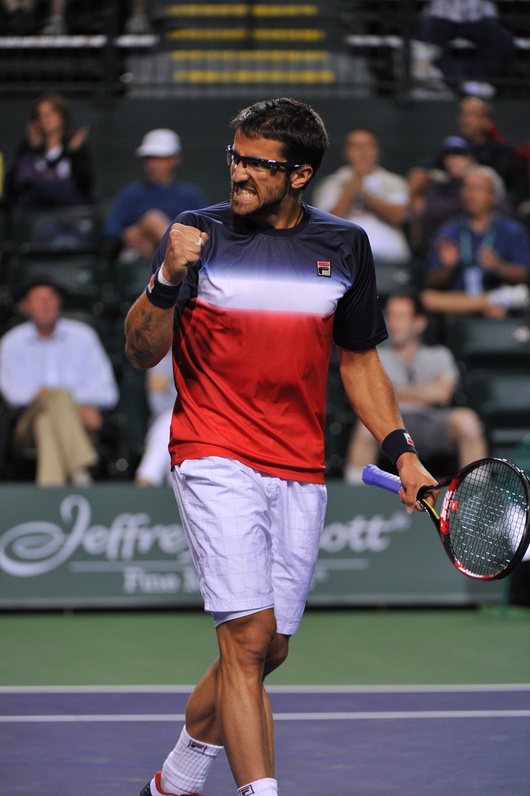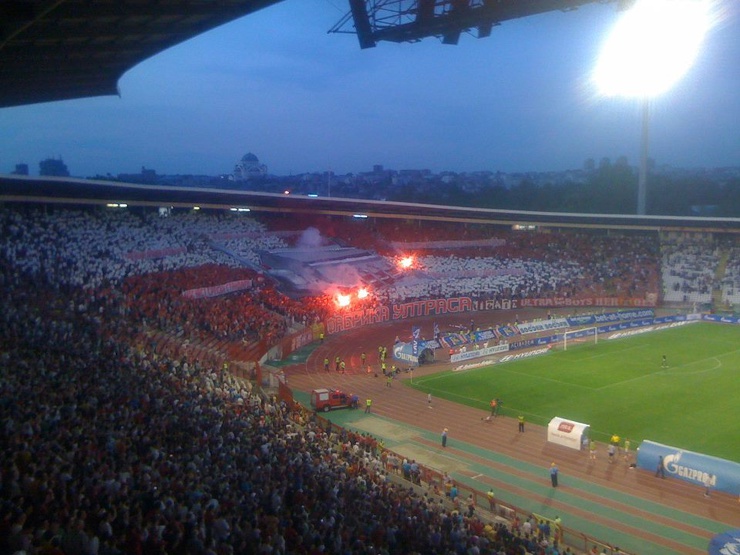
Tennis, waterpolo, volleyball - secret to Serbia sports success runs in their blood
Published on
Translation by:
 Tansy Larsen
Tansy Larsen
When the Serbs were part of the former Yugoslavia, they were always winning in competitive sports. Since 2001 the nation has seen four name changes, becoming simply 'Serbia' in 2006. Nevertheless, this hectic political history hasn’t drained the Balkan country of sportive energy in the slightest
From up in the stands reserved for the press, we have the perfect panoramic view of the red star stadium, home to Serbia’s top football club, Red Star Belgrade, who are defending their number two spot in the Serbian SuperLiga. We can feel their manager Robert Prosinecki’s nerves as he paces in front of the bench giving out orders to his players. Just twenty-fourhours beforehand, talking to us in the club’s cafeteria, he reveals the main problem facing football in Serbia. 'The players leave the clubs too quickly,' he says. 'There’s no continuity.' They do so, according to him, for 'economic reasons and prestige'. Add to that the fact that 'Serbian clubs aren’t strong financially speaking', and we can understand the resignation of Serbian football in the face of the increasingly powerful European clubs.

Team vs individual
Football seems to be the only real exception to the recent boom in Serbia’s sporting accomplishment. On 29 January 2012 the Serbia men's national water polo team won the European championship; the final was in fact against Montenegro, which was part of the same nation as Serbia until 2006. There were two causes for celebration that day in Belgrade, given that the water polo victory was on the very same day that Novak Djokovic beat Rafael Nadal in the Australian open final. Serbia’s water polo team were no stranger to the top of the rankings, having been world champions in 1986, 1991, 2005 and 2009. Their current coach, Dejan Udovicic, explains that success stems from two things: good players and a good training system for the youth categories. However, he acknowledges that there are still improvements to be made. 'The government does what it can to support us, but I believe it could still do more,' he says.
Another team sport in which no one outshines Serbia is volleyball. One of its key figures Ivan Miljkovic is now president of Serbia’s volleyball committee and has won eight individual awards as well as an olympic gold medal playing with the Yugoslavia national team in Sydneyin 2000. 'After the initial stress of joining a winning team, all you want is to follow the rest and work towards victory together,' he says.
Dark horses of tennis
 After getting lost several times in New Belgrade and despite the 35 degree heat, we defy the high temperatures and enjoy a mocha with Nebojsa Viskovic, a sports journalist for twenty years who is considered by many to be the best sports commentator in Serbia.
After getting lost several times in New Belgrade and despite the 35 degree heat, we defy the high temperatures and enjoy a mocha with Nebojsa Viskovic, a sports journalist for twenty years who is considered by many to be the best sports commentator in Serbia.
The Sportsklub television channel reporter explains that Serbia’s victories in the tennis world since 2006 are what have really surprised the nation. 'What’s happening with tennis is almost unbelievable,' he admits. 'We have no tennis tradition, we had really bad infrastructures, and Serbia didn’t invest a single dinar in the sport. The players managed it all by themselves. How? It’s a mystery, a miracle. It just happened, like a rose growing in a desert.' And it has just kept blooming. 'It’s easier now. 24-year-oldAna Ivanovic and her generation have paved the way.' Ana won roland garros in 2008 and like all sportspeople of her age, grew up in between two wars. 'It wasn’t easy, but I was a kid, I wasn’t really aware of it,' says Janko Tipsarević, number eight in the ATP rankings, who spares a few minutes between the Madrid Open and the Italian Open to respond to our questions via email. 'All I wanted was to play tennis.'
We follow the trail of sporting success and arrive at the Novak Djokovic tennis centre, situated at the confluence of the Sava and Danube rivers. Despite the intense heat at 4pm, several of the fourteen courts are in use. Huge pictures of Novak (as the locals call him) watch over us as we observe the stands from the Serbia open being dismantled; the tournament, organised by Novak's uncle Goran Djokovic, had ended just a couple of days earlier. After talking to various employees there we realise that the importance of Novak for Serbia goes far beyond what any other sportsperson could achieve in another country, because not only are we talking about the current world number one, but also, as the manager Robert Prosinecki put it, a great 'ambassador for the whole of Serbia.'
Promoting Serbia through sport
All of these great achievements affect the country in two ways. Firstly, reconstructing the way it’s seen by the rest of the world. 'Serbia still doesn’t have a name for itself on the world stage due to all of the things that have happened here,' reporter Viskovic explains. 'But sport is the best publicity. However the damage is too great to be repaired that quickly; all we can do is wait.'
Serbia still doesn’t have a name for itself on the world stage due to all of the things that have happened here, but sport is the best publicity
On the other hand, this success sometimes acts as a smokescreen to make people forget about the various other problems faced by Serbia, such as youth unemployment. 'All of the cause for celebration in Serbia over recent years is related to sport and eurovision,' points out Viskovic. 'Of course we’re also successful when it comes to culture, but sport is our number one joy.' Ivan Miljkovic believes that Serbia’s sporting exploits have helped the Serbs to see that 'there are people who play hard and give their absolute best for our nation. I hope that our victories have helped them at some point during our crazy history.'
Secret to success
According to Viskovic, Serbia can’t be compared to countries where new top sportspeople emerge each year, because the institutional support in the Balkan nation is scarce if not non-existent, meaning that players’ careers are backed mainly by their families and sponsors. For example, tennis pro Janko Tipsarević tells us that his father had three different jobs in order to support his son’s tennis career. So, what exactly is the secret behind Serbia’s success? Prosinecki shakes his head: 'Not even I could answer that one. There are fewer infrastructures and less money than in other countries, but the talent always rises to the surface.' For Viskovic, the key is the 'natural talent, the genes and the passion', whereas for Janko, it is 'solely down to individual effort', and for Ivan Miljković, the secret lies in 'the desire for victory'.

As we leave the Red Star Stadium, a Serbian lady strikes up a conversation with me, which she concludes by saying: 'Sport is in our genes.' During our stay in Belgrade we don't find any scientific evidence to confirm that, but what cannot be denied is that sporting success forms an integral part of Serbia’s identity.
This article is part of cafebabel.com’s 2011-2012 feature focus on the Balkans, Orient Express Reporter 2, a project co-funded by the European Commission and with the support of Allianz Kulturstiftung. Many thanks to Senka Korać akacafebabel.com Belgrade for her incredible help and endless patience
Images: main (cc) Ana Ivanovic official website; Janko Tipsarevic press and wikipedia; in-text: press conference and football stadium © Cristina Cartes; Janko Tipsarevic courtesy of his representative/ video (cc) wasswayne1/ youtube
Translated from El éxito deportivo de Serbia: “talento natural, genes, pasión”


